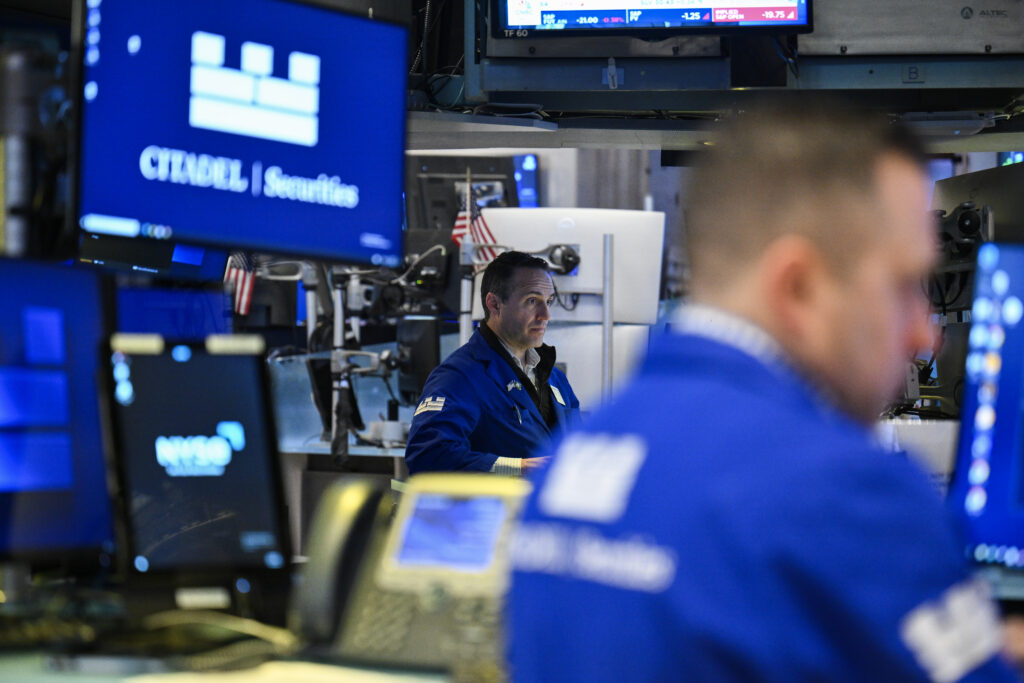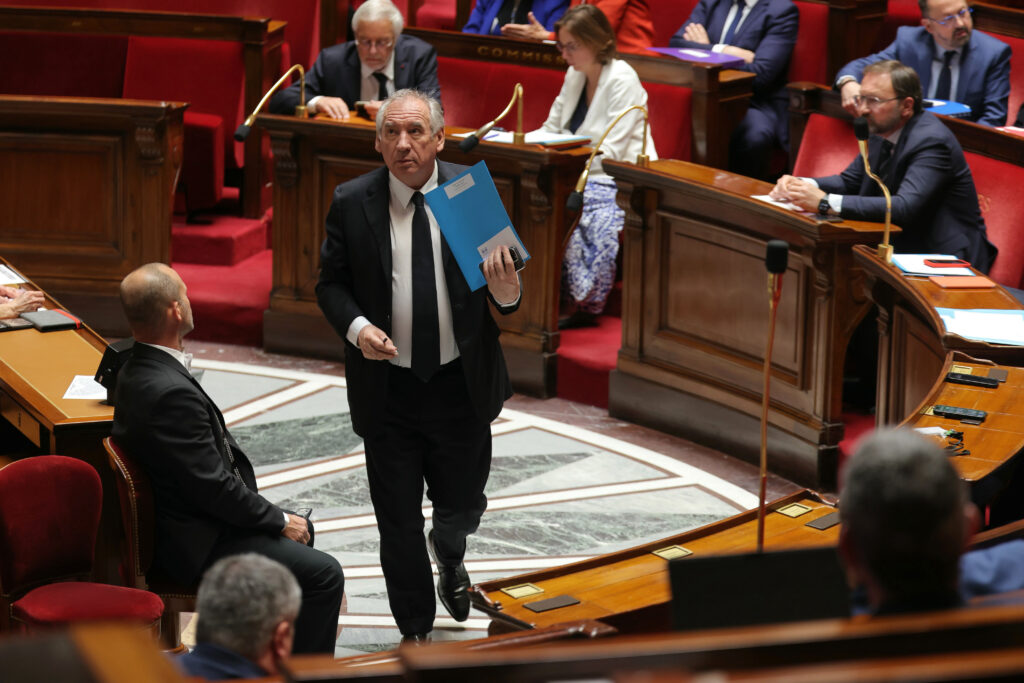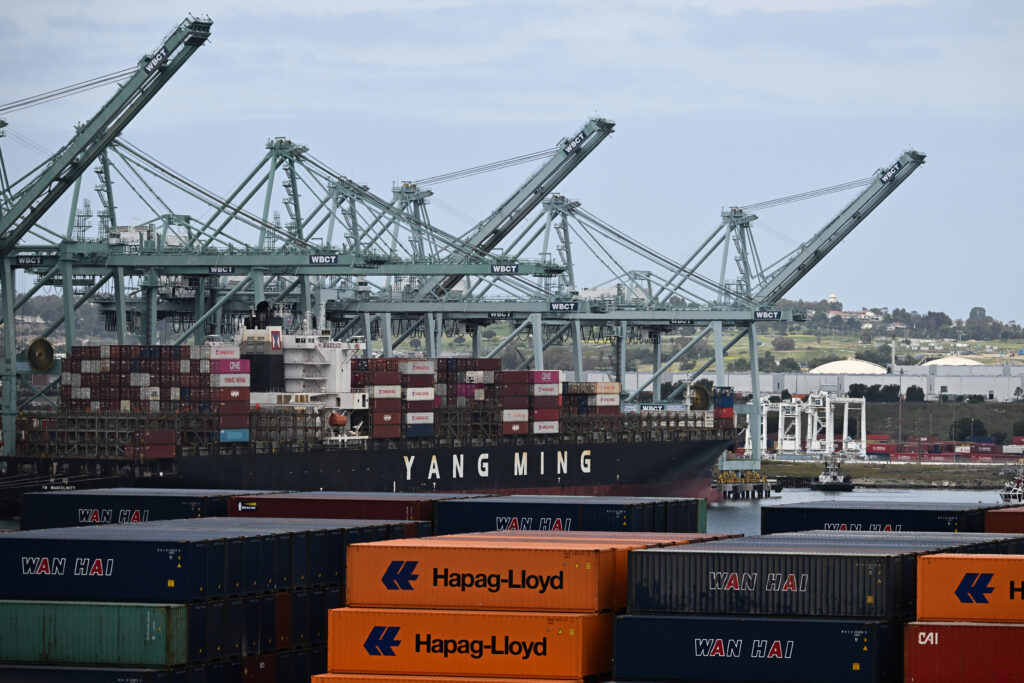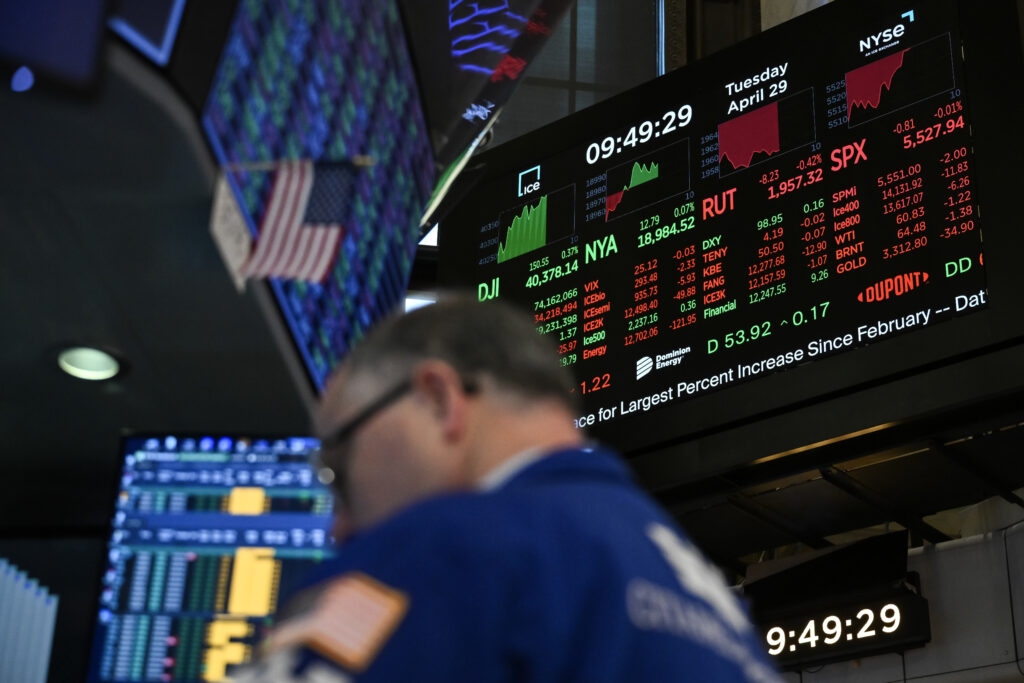Wall Street ouvre en baisse, minée par l’image d’une économie américaine vacillante
La Bourse de New York a ouvert en nette baisse mercredi, plombée par le recul surprise du PIB des Etats-Unis et par le ralentissement des embauches dans le secteur privé américain, tandis que la saison des résultats d’entreprises bat toujours son plein.Vers 13H50 GMT, le Dow Jones perdait 1,46%, l’indice Nasdaq plongeait de 2,38% et l’indice élargi S&P 500 abandonnait 1,81%.”Le marché est sous pression: la crainte d’une récession est le principal moteur de cette tendance à la baisse”, commente auprès de l’AFP Adam Sarhan, de 50 Park Investments. Avant l’ouverture de Wall Street, les investisseurs ont été pris de court par le recul du produit intérieur brut (PIB) du pays au premier trimestre, alors que l’économie américaine était encore florissante fin 2024.”Il s’agit d’un mauvais rapport et le marché s’est fortement replié à la suite de cette nouvelle”, observe M. Sarhan.Première mesure trimestrielle du PIB américain depuis le retour de Donald Trump à la Maison Blanche, ces données étaient particulièrement attendues après des premiers mois chahutés par les droits de douane.En rythme annualisé, mesure privilégiée par les États-Unis, le PIB s’est contracté de 0,3%, selon les données publiées mercredi par le ministère du Commerce, contre +0,4% attendu par les analystes.Donald Trump a jugé mercredi que le ralentissement économique aux Etats-Unis était un “reliquat” de son prédécesseur Joe Biden et n’avait “rien à voir avec les droits de douane”, dans un message sur son réseau Truth Social.Autre indicateur en berne: l’enquête mensuelle ADP/Stanford Lab, selon laquelle les entreprises privées aux Etats-Unis ont créé nettement moins d’emplois en avril qu’attendu par les analystes, évoquant le “malaise” des employeurs face à l’incertitude générée par les nouvelles surtaxes douanières.Le mois dernier, 62.000 emplois ont été créés dans le secteur privé, soit moins qu’attendu par les analystes et moins qu’en mars (147.000 emplois).Les investisseurs attendent désormais la publication de l’indice officiel PCE à 14H00 GMT, jauge d’inflation privilégiée par la banque centrale américaine (Fed).”Chaque donnée publiée est importante, car elle nous donne une idée de ce que sera la politique à suivre”, souligne M. Sarhan.”Non seulement la politique monétaire de la banque centrale américaine (Fed), mais aussi la politique budgétaire du Congrès”, détaille l’analyste. L’indice de volatilité Vix, surnommé “indice de la peur”, qui mesure la nervosité des investisseurs sur le marché, s’envolait de plus de 9%.Sur le marché obligataire, le taux d’intérêt des emprunts d’Etat américains à dix ans se détendait à 4,16%, contre 4,17% mardi en clôture.






